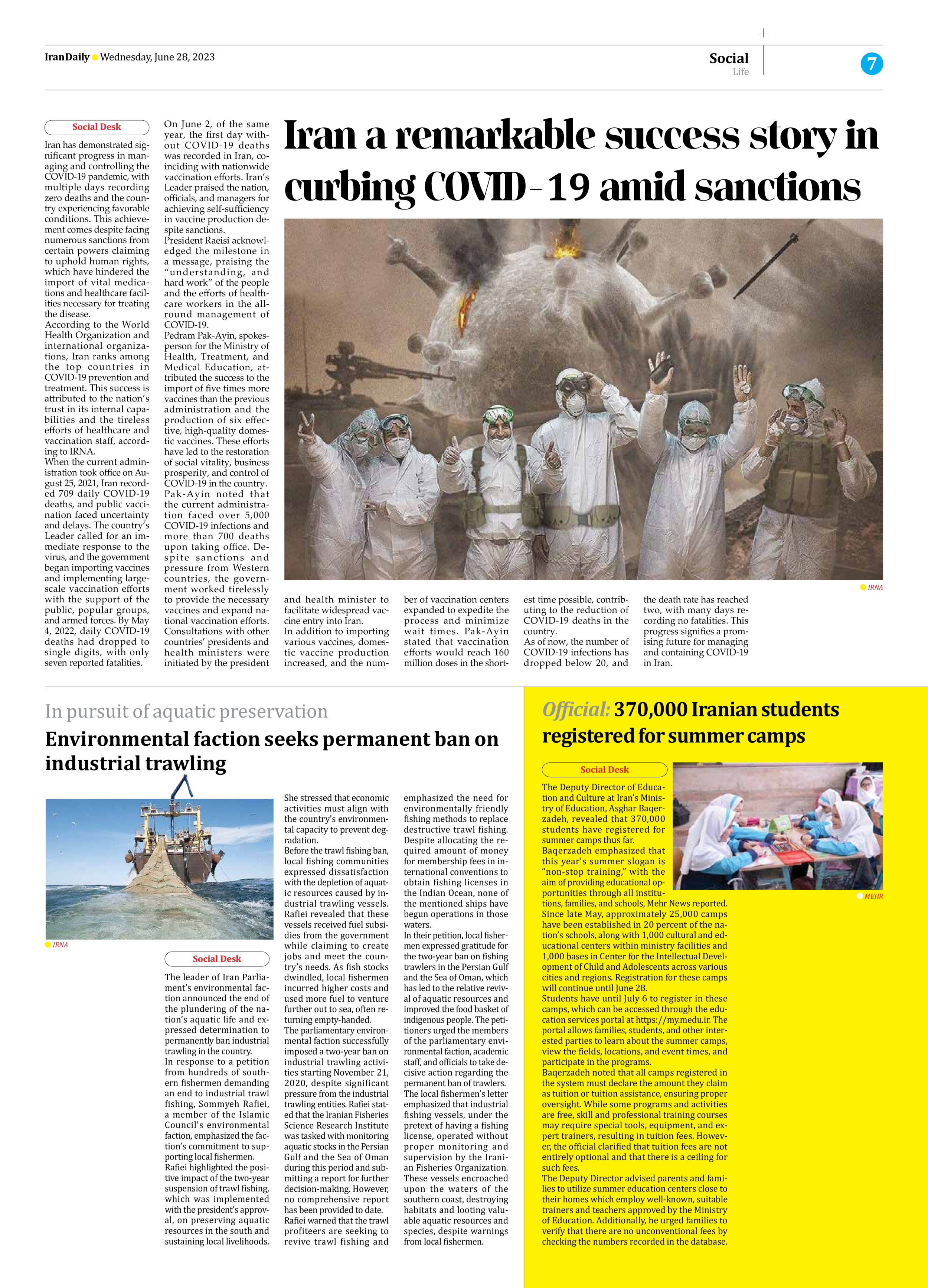
In pursuit of aquatic preservation
Environmental faction seeks permanent ban on industrial trawling
The leader of Iran Parliament’s environmental faction announced the end of the plundering of the nation’s aquatic life and expressed determination to permanently ban industrial trawling in the country.
In response to a petition from hundreds of southern fishermen demanding an end to industrial trawl fishing, Sommyeh Rafiei, a member of the Islamic Council’s environmental faction, emphasized the faction’s commitment to supporting local fishermen.
Rafiei highlighted the positive impact of the two-year suspension of trawl fishing, which was implemented with the president’s approval, on preserving aquatic resources in the south and sustaining local livelihoods. She stressed that economic activities must align with the country’s environmental capacity to prevent degradation.
Before the trawl fishing ban, local fishing communities expressed dissatisfaction with the depletion of aquatic resources caused by industrial trawling vessels. Rafiei revealed that these vessels received fuel subsidies from the government while claiming to create jobs and meet the country’s needs. As fish stocks dwindled, local fishermen incurred higher costs and used more fuel to venture further out to sea, often returning empty-handed.
The parliamentary environmental faction successfully imposed a two-year ban on industrial trawling activities starting November 21, 2020, despite significant pressure from the industrial trawling entities. Rafiei stated that the Iranian Fisheries Science Research Institute was tasked with monitoring aquatic stocks in the Persian Gulf and the Sea of Oman during this period and submitting a report for further decision-making. However, no comprehensive report has been provided to date.
Rafiei warned that the trawl profiteers are seeking to revive trawl fishing and emphasized the need for environmentally friendly fishing methods to replace destructive trawl fishing. Despite allocating the required amount of money for membership fees in international conventions to obtain fishing licenses in the Indian Ocean, none of the mentioned ships have begun operations in those waters.
In their petition, local fishermen expressed gratitude for the two-year ban on fishing trawlers in the Persian Gulf and the Sea of Oman, which has led to the relative revival of aquatic resources and improved the food basket of indigenous people. The petitioners urged the members of the parliamentary environmental faction, academic staff, and officials to take decisive action regarding the permanent ban of trawlers.
The local fishermen’s letter emphasized that industrial fishing vessels, under the pretext of having a fishing license, operated without proper monitoring and supervision by the Iranian Fisheries Organization. These vessels encroached upon the waters of the southern coast, destroying habitats and looting valuable aquatic resources and species, despite warnings from local fishermen.







